‘We went out there very cold’: The little known story of Wales’ only visit to Qatar
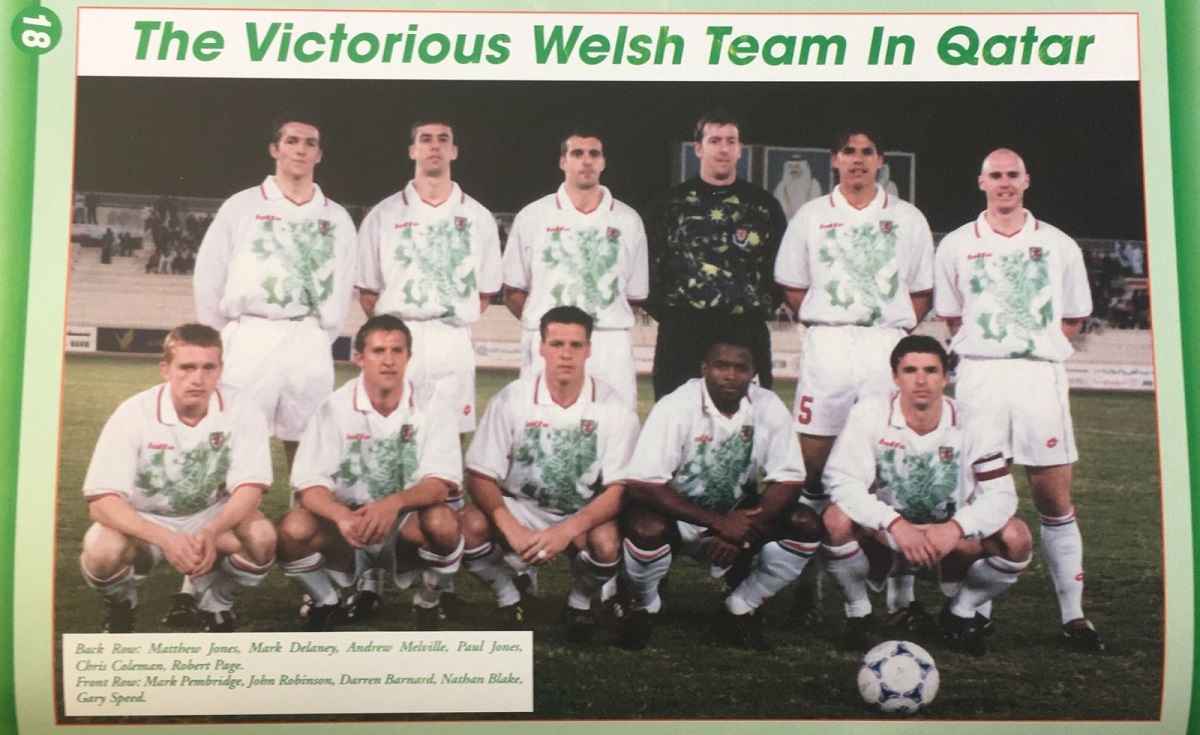
Luke James
For many Wales fans travelling to Qatar, just singing the anthem will be enough to make the long, expensive journey worthwhile. Celebrating a goal would be the cherry on top.
A low benchmark, perhaps, but something some supporters feared they may never again get the chance to experience. Three of them in particular.
“There was me, Tiny from north Wales and Tim from Cardiff. We jumped in a taxi and told the driver to take us to the football,” remembers Wales away veteran Neil Dymock of his first visit to Qatar.
“He took us to this ground and we all got out. I started walking towards the ground and there were all these kids playing football.
“As I turned round the taxi drove off. We were stuck at this children’s game and it took us about 20 minutes to get a taxi. So, we turned up at the real game just after John Robinson had scored. I remember thinking, don’t worry, we’ll score more than one tonight and we never did.”
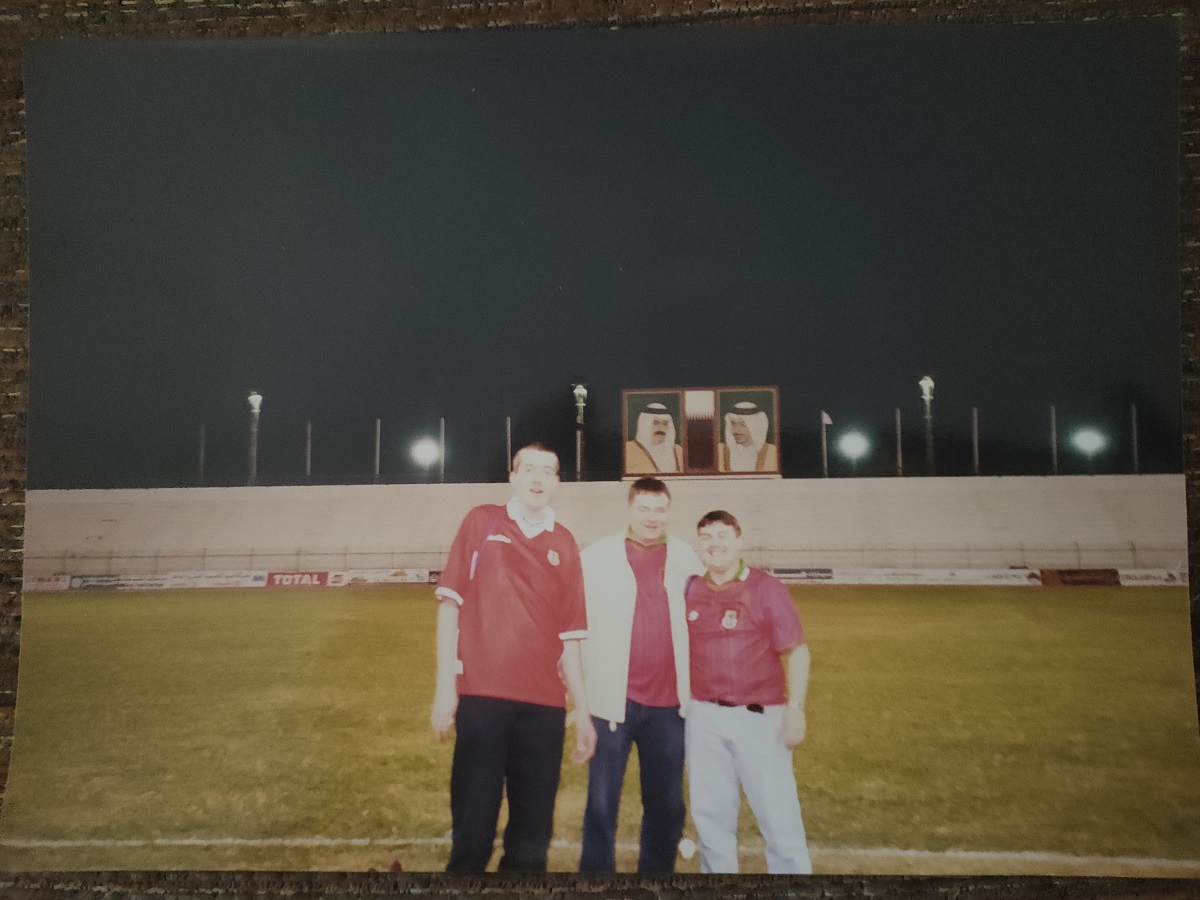
This might be Wales’ first World Cup in 64 years, but a small band of supporters and staff have more recent, if mixed, memories of this year’s host country.
The Dragons landed in Doha in February 2000 with a new manager for the new millennium. After picking up the pieces of Bobby Gould’s chaotic reign in a caretaker capacity, Mark Hughes was made the permanent manager in time for the trip to Qatar.
It was probably not Hughes’ ideal preparation for the forthcoming World Cup qualifying campaign, but it served other purposes for both countries.
“In those days friendly matches were usually organised by agents,” explained life vice-president of the Football Association of Wales, Peter Rees, who was head of the delegation for the trip.
“By the look of it, they were desperate to get a UK team out there for their credibility and getting the third oldest association to go out there was a coup for them.
“The Doha people fell over themselves to accommodate us. They were very, very pleased we were there. Financially it wasn’t bad for us neither.”
‘Ballistic’
The front cover of the match programme, showing Mark Hughes and his squad underneath portraits of the country’s rulers, along with a montage of Welsh landmarks and attractions, underlined the diplomatic value of the match for the hosts.
In any case, Hughes was more concerned about his home debut the following month.
“I met him at the hotel at Heathrow on Saturday evening before we flew on Sunday morning,” remembered Rees. “We had just signed a contract to go the Millennium Stadium and we had a friendly lined up against Finland.
“Some of the committee didn’t want to go to the Millennium, they wanted to keep that for when we started the next qualifying group. Mark went absolutely ballistic in the hotel, saying ‘no, no we need to play a game there before’. So that was the first time I had my ear bent by Mark.”
It wasn’t just the stadium that pre-occupied Hughes at the time. Better hotels, training facilities, transport and food were also part of his efforts to raise standards around the nation team.
“Sometimes the preparation wasn’t really taken into account,” Wales’ goal scorer, John Robinson, told Nation.Cymru from Dubai, where he now runs his own football academy.
“We’d often arrive the day before, play the game and then leave. Those kind of friendlies were more for the FAW and the financial side of things. But you’ll go where you play for your country.”
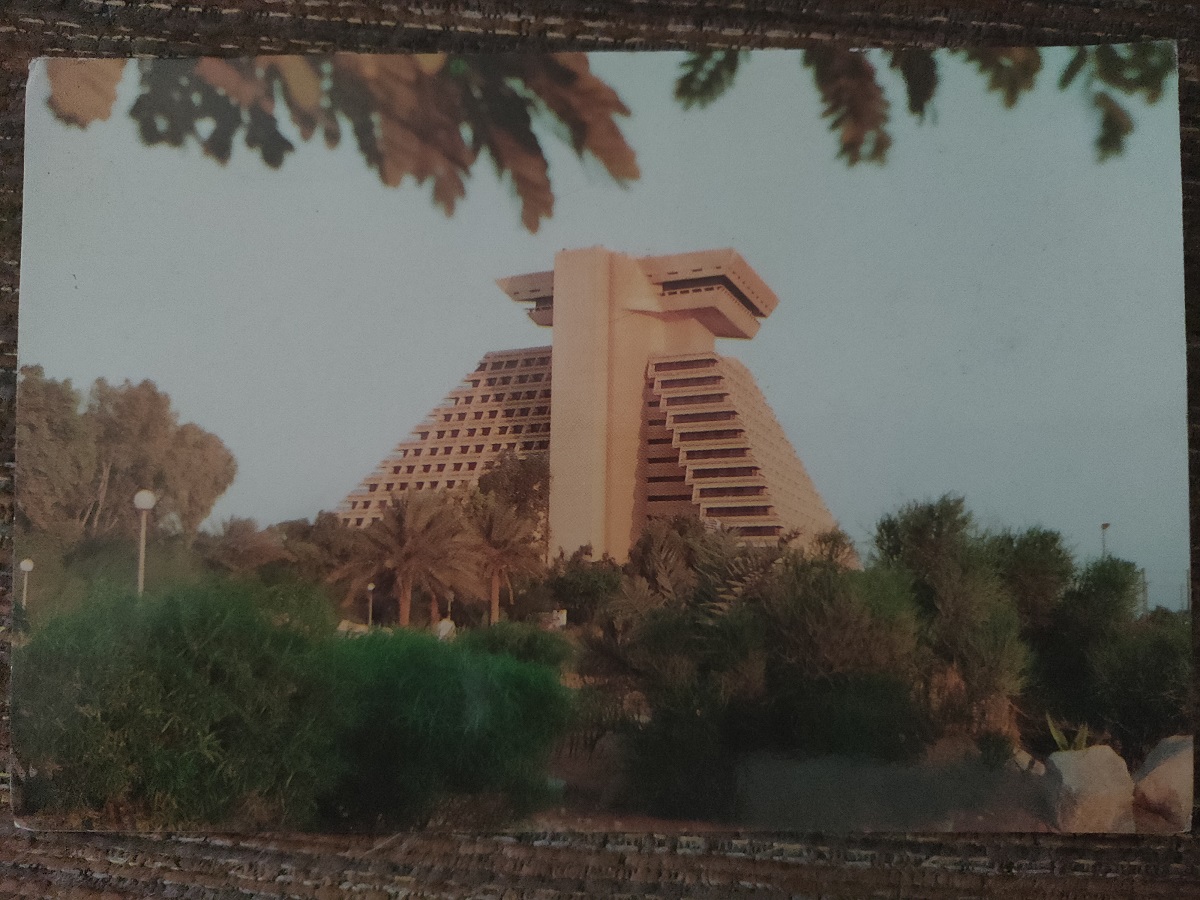
Qatar was an exception. The players stayed in Doha’s five-star Sheraton hotel and were treated to a banquet laid on by the country’s royal family as well as a reception at the home of the UK ambassador.
They still though found time to mingle with some of the 17 supporters who made the trip from Wales to the middle east.
“The only bars back then were in hotels so we were drinking in the players’ hotel,” said Dymock. “You couldn’t do it now, you wouldn’t get in. But this was going back 22 years. I got a few photos of Mark Hughes in the bar. Gary Speed said hello.
“You went up to the first floor and there was a big black screen and behind the screen you went into the bar. I remember it was five pound a pint, which was a lot then. I remember going out on the day of the game with a hundred pound and spending it all.”
‘Gamble’
The real problem for the team this time was on-field preparations.
“We didn’t know anything about them. At that time, we probably didn’t even know where Qatar was,” said Robinson.
“We thought we’d get a good few goals, probably the same as when we played San Marino. That kind of mentality. I can’t remember if we had any preparation or a video to watch, I think we would have gone in there very cold.”
Despite the stadium being decked out in daffodils flown in for the occasion, the feeling of unfamiliarity was compounded when the scheduled 6pm kick-off at the Al-Arabi stadium, a one-tier bowl of concrete terracing, was delayed by a call to prayer after the players had already taken to the field and sung the anthems played by a 60 piece brass band.
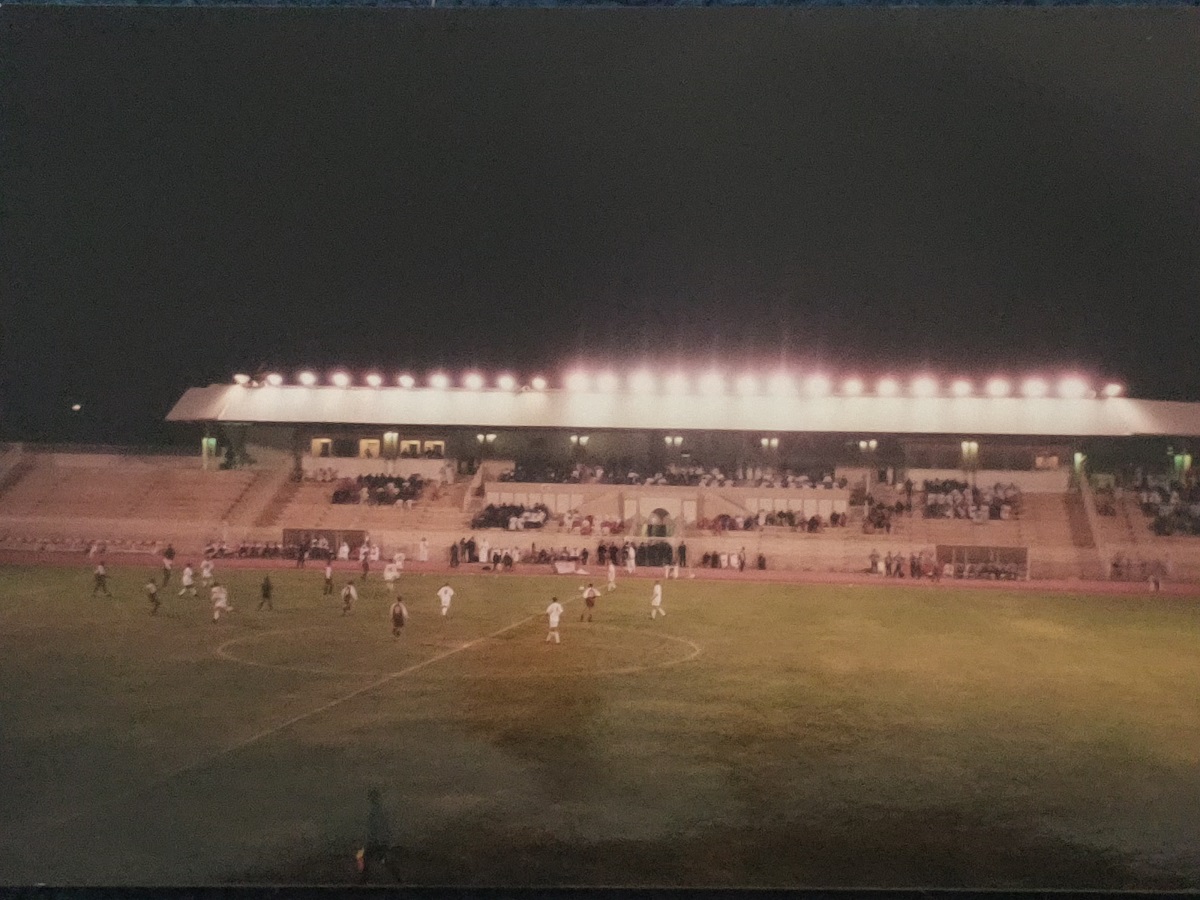
Hughes took no chances in his first official match in charge, fielding a strong team including three future managers – Gary Speed, Chris Coleman and Rob Page – and setting up with five at the back as well as two deep-lying midfielders.
Current Wales assistant manager Kit Symons was on the bench. A debut for Mathew Jones, then a promising Leeds midfielder who is also now on Page’s staff, was one of only two changes from the previous game.
The match, in which Wales played in their white Lotto third kit for the only time, appeared to be living up to Robinson’s expectations when he scored after ten minutes.
“Paul Jones’s long goal-kick was touched down by Speed on the edge of the Qatar area and Robinson arrived at full speed to half-volley past Ahmed Khalil,” read the Guardian’s match report.
Robinson was running at full speed because he was certain the flick-on was coming.
“You knew with Speed that 95% of the time he’s going to win the header,” said Robinson. “He was always good in the air, so you gamble on that. I just remember going off on his flick and then having the opportunity to put it in.
“When you’ve got someone like Gary going up, you take that gamble. I always remember thinking whenever he goes up, I’m going in behind.”
‘Snacks’
Speed’s ability in the air saw Wales come close to adding two more goals. But Qatar, just 9 places behind Wales in the FIFA rankings at the time and aided by the warm conditions, went on to justify what the Guardian called Hughes’ “defensive tactics in the desert.”
“The Welsh back line was caused plenty of trouble by Qatar, who were quick and powerful up front,” the Mirror reported. “After the break Wales appeared content to defend and hang on to their lead.”
In the stands, the 17 travelling supporters were joined by around 50 Welsh ‘expats’ in the crowd of 2,000.
“There was no away end, you could walk anywhere,” Dymock recalled. “It was like a Welsh Premier ground, we were just stood on the terrace.”
Among the crowd was the country’s then ruler, Sheik Hamal Bin Khalifa Al Thani, who sat next to Peter Rees of the FAW.
“The Sheik came to the game and we sat in what we would refer to as a royal box,” recalls Rees. “We had big grey armchairs to sit in and just in front of my seat there was a little coffee table with cold drinks and some snacks on.
“It wasn’t a particularly exciting match. Quite honestly it was a tougher game than we anticipated than when we went out there.”
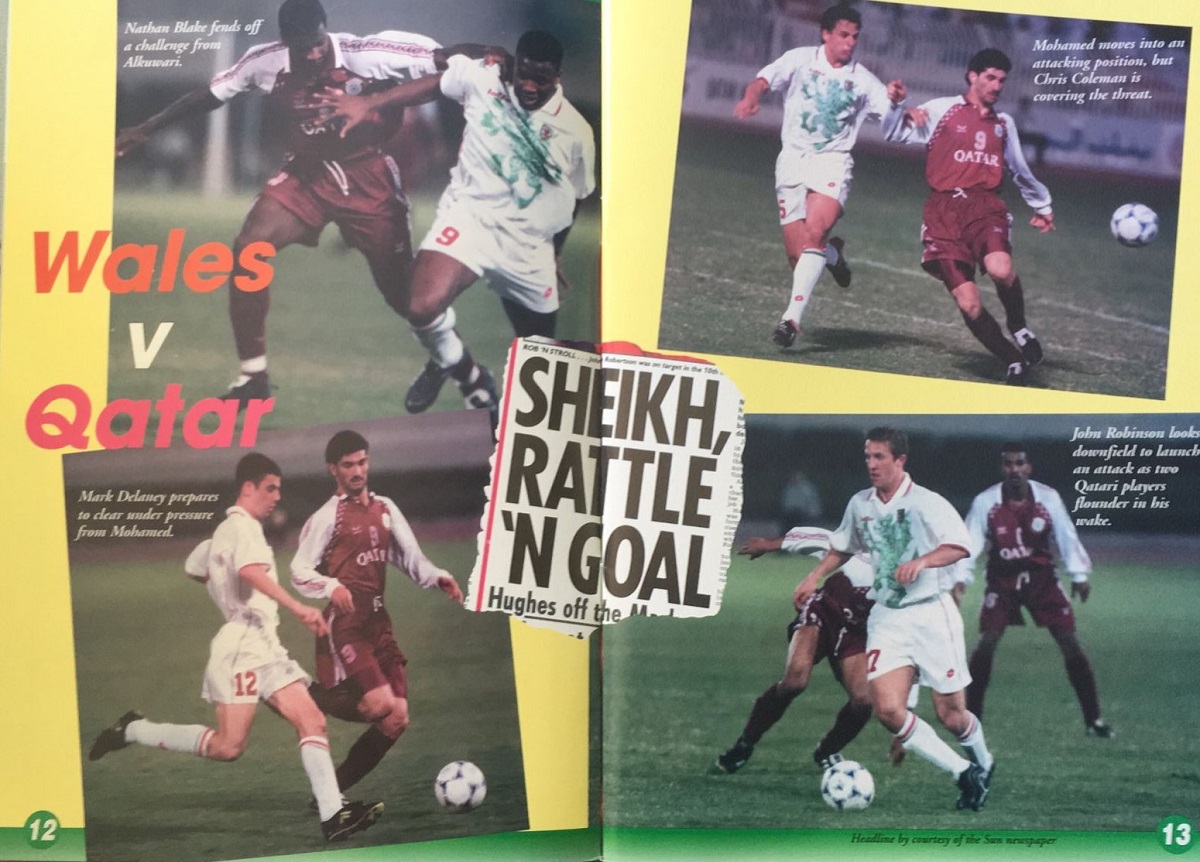
Afterwards, Hughes defended his cautious approach, telling the media: “The important thing was winning. It was hard work on a very hard pitch in difficult, humid conditions.”
Robinson’s goal helped him to win Wales Footballer of the Year later that season.
Meanwhile, Dymock and his two fellow ground groundhoppers were able to go on the pitch to take photographic evidence that they had made the game eventually. And they had no better luck getting back from the game.
“We were struggling to get a taxi back and there was no public transport,” said Dymock. “I was just putting my hand out trying to get a lift of anyone.
“This big 4×4 stops and the driver said jump in. The driver and the guy in the front seat had a tracksuit on – it turned out they were the match officials.”
Wales will be just one of two European countries at this year’s World Cup to have played in Qatar.
This strange and forgettable friendly has, after 22 years, been transformed into an invaluable recce for staff and supporters alike. The main lesson from which appears to be: always book a taxi.
Support our Nation today
For the price of a cup of coffee a month you can help us create an independent, not-for-profit, national news service for the people of Wales, by the people of Wales.





